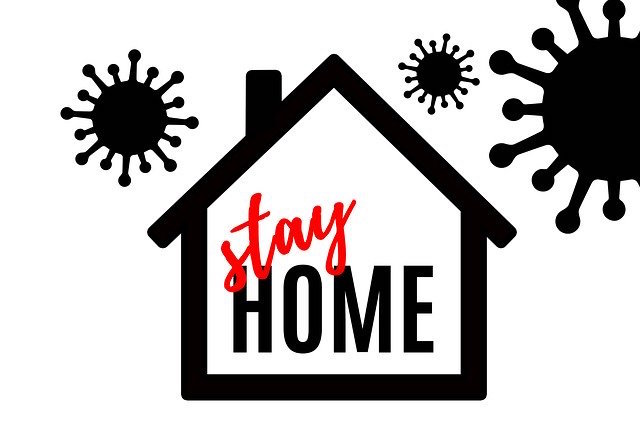 Coronavirus/COVID-19 anxiety is now part of our daily life. The latest survey by the American Psychiatric Association reports that nearly 48% of all Americans are worried about becoming ill with COVID-19/ Coronavirus. Our lives seem to have changed forever. The following is second in the series on strategies for managing your Coronavirus/ COVID-19 Anxiety.
Coronavirus/COVID-19 anxiety is now part of our daily life. The latest survey by the American Psychiatric Association reports that nearly 48% of all Americans are worried about becoming ill with COVID-19/ Coronavirus. Our lives seem to have changed forever. The following is second in the series on strategies for managing your Coronavirus/ COVID-19 Anxiety.
Improve Sleep
Start today by thinking of sleep as an essential activity. Remember, restorative sleep is a highly effective way of managing anxiety. Try to figure out how many hours of sleep you need to wake up feeling rested. Everyone needs a different amount of sleep, but the average is from six to ten hours.
So pick a routine time to initiate sleep. Permit yourself to adopt wind-down activities that allow your brain to calm down before going to bed. Limit your electronic usage to at least two hours before you plan to hit the sack. Maybe stop spending your wind-down time reviewing the latest COVID-19 news. Instead, do a quick brain dump by writing all of your disease worries in a notebook kept by your nightstand. Or perhaps, start your sleep routine by taking a warm and relaxing bath to reduce muscular tension. Remember, prepping for a good night sleep can improve your mood and reduce your anxiety.
Use Gratitude Tools
Journal Writing – Writing in a journal provides an opportunity to identify the positive things in your life. It is just too easy to obsess about the negativity of COVID-19. Those successful with implementing gratitude tools have a fixed time for this activity. The best time is whenever in your schedule is consistent and free from interruptions. Setting aside a specific and inflexible time is often described as the key to sustaining journal writing. Kathleen Adams’ book, “The Way of the Journal” is a self-help tool to seek a more profound awareness about this practice
Find Visual Images
Research suggests that visualizing a positive picture can lead to improvements in mood, performance, and gratitude. Visualization can include the simple ritual of viewing photographs of people who have positively touched your life. I recommend finding a photo of a memorable, positive event or person to keep on your cell phone. When you’re feeling discouraged or gloomy, you can practice gratitude by viewing this particular photo and reflecting on it to lighten the heavy mood.
Positive memories can also be used as a trigger to feel calm. Here’s another exercise: try remembering three happy memories and write them down on colorful and eye-catching index cards. Then, stick them around your house in unique places you visit every day. You’ll remember these memories of happy occasions by entering the space and viewing the card. When you get used to seeing the cards where you have put them, identify more memories, and place them around your home!
Summary Managing Coronavirus/COVID-19 Anxiety
If you recognize your mental state isn’t great right now, the internet is flooded with stress modifiers to the journey of empowerment and self-control. There are also well-known anxiety-reducing therapies online, such as yoga, breathwork, and mediation. Remember, you are not alone. Feelings of anxiety do not discriminate. They present themselves regardless of gender, race, or socioeconomic status. Hopefully, these strategies to reduce your Coronavirus/COVID-19 helped jump-start your anxiety reduction tools.
Below are the strategies we have covered above and a few more….
- Acknowledge your symptoms of anxiety
- Get the facts, preferably from the CDC or news outlets that reference it
- Reduce your media intake and technology use as best as you can
- Find simple activities that require you to focus (e.g. coloring books, cleaning a closet, cleaning pantry)
- Embrace silence – it’s okay to be bored
- Don’t drink, especially if you’re alone, because it increases mood symptoms
- Create a gratitude list every day
- Find quote of the day and focus on it
- Exercise – there are plenty of exercise YouTubers who are giving free home workouts
- Write down three memories that make you smile and place them around your home
- Get sleep at a regular time
- Get your Vitamin C/ eat an orange
- Contact a friend to chat or virtually watch a movie together
image courtesy of Gerd Altmann from Pixabay.com
